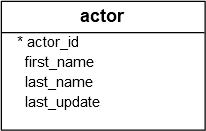Summary: in this tutorial, you will learn how to use the PostgreSQL DROP INDEX statement to remove an existing index.
Introduction to PostgreSQL DROP INDEX statement
Sometimes, you may want to remove an existing index from the database system. To do it, you use the DROP INDEX statement as follows:
DROP INDEX [ CONCURRENTLY] [ IF EXISTS ] index_name
[ CASCADE | RESTRICT ];In this syntax:
index_name
You specify the name of the index that you want to remove after the DROP INDEX clause.
IF EXISTS
Attempting to remove a non-existent index will result in an error. To avoid this, you can use the IF EXISTS option. In case you remove a non-existent index with IF EXISTS, PostgreSQL issues a notice instead.
CASCADE
If the index has dependent objects, you use the CASCADE option to automatically drop these objects and all objects that depend on those objects.
RESTRICT
The RESTRICT option instructs PostgreSQL to refuse to drop the index if any objects depend on it. The DROP INDEX uses RESTRICT by default.
Note that you can drop multiple indexes at a time by separating the indexes by commas (,):
DROP INDEX index_name, index_name2,... ;CONCURRENTLY
When you execute the DROP INDEX statement, PostgreSQL acquires an exclusive lock on the table and blocks other accesses until the index removal is completed.
To force the command to wait until the conflicting transaction completes before removing the index, you can use the CONCURRENTLY option.
The DROP INDEX CONCURRENTLY has some limitations:
- First, the
CASCADEoption is not supported. - Second, executing in a transaction block is also not supported.
PostgreSQL DROP INDEX example
We will use the actor table from the sample database for the demonstration.
 The following statement creates an index for the
The following statement creates an index for the first_name column of the actor table:
CREATE INDEX idx_actor_first_name
ON actor (first_name);Sometimes, the query optimizer does not use the index. For example, the following statement finds the actor with the name John:
SELECT * FROM actor
WHERE first_name = 'John';The query did not use the idx_actor_first_name index defined earlier as explained in the following EXPLAIN statement:
EXPLAIN SELECT *
FROM actor
WHERE first_name = 'John';Output:
QUERY PLAN
------------------------------------------------------
Seq Scan on actor (cost=0.00..4.50 rows=1 width=25)
Filter: ((first_name)::text = 'John'::text)
(2 rows)This is because the query optimizer thinks that it is more optimal to just scan the entire table to locate the row. Hence, the idx_actor_first_name is not useful in this case, you can remove it:
DROP INDEX idx_actor_first_name;The statement removed the index as expected.
Summary
- Use the PostgreSQL
DROP INDEXstatement to delete an index.